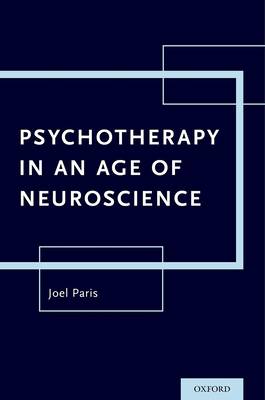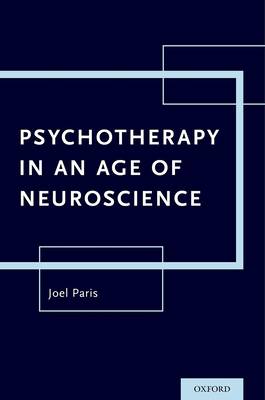
- Retrait gratuit dans votre magasin Club
- 7.000.000 titres dans notre catalogue
- Payer en toute sécurité
- Toujours un magasin près de chez vous
- Retrait gratuit dans votre magasin Club
- 7.000.0000 titres dans notre catalogue
- Payer en toute sécurité
- Toujours un magasin près de chez vous
Description
Psychotherapy In an Age of Neuroscience is a critique of the neuroscience model that dominates contemporary psychiatric practice. It shows that while the neurosciences have made great advances, this line of research has thus far had little application to the care of patients. It criticizes the over-use of psychopharmacological interventions for common mental disorders such as depression, anxiety, and substance use. It examines why many, if not most, psychiatrists are seeing patients for 15-minute "med checks" oriented to current symptoms and DSM criteria, and are not taking the time to become familiar with the lives of their patients. The book shows that effective psychotherapeutic interventions are being under-utilized. It proposes that psychiatric practice include the use of psychotherapies that are brief and evidence-based. While most therapy will need to be carried out by psychologists and other mental health professionals, psychiatrists should take on the most complex and difficult cases that require both medication and therapy. By integrating biological and psychosocial interventions, psychiatrists can regain their reputation for breadth of vision and humanism.
Spécifications
Parties prenantes
- Auteur(s) :
- Editeur:
Contenu
- Nombre de pages :
- 216
- Langue:
- Anglais
Caractéristiques
- EAN:
- 9780190601010
- Date de parution :
- 14-06-17
- Format:
- Livre broché
- Format numérique:
- Trade paperback (VS)
- Dimensions :
- 137 mm x 206 mm
- Poids :
- 249 g

Les avis
Nous publions uniquement les avis qui respectent les conditions requises. Consultez nos conditions pour les avis.






